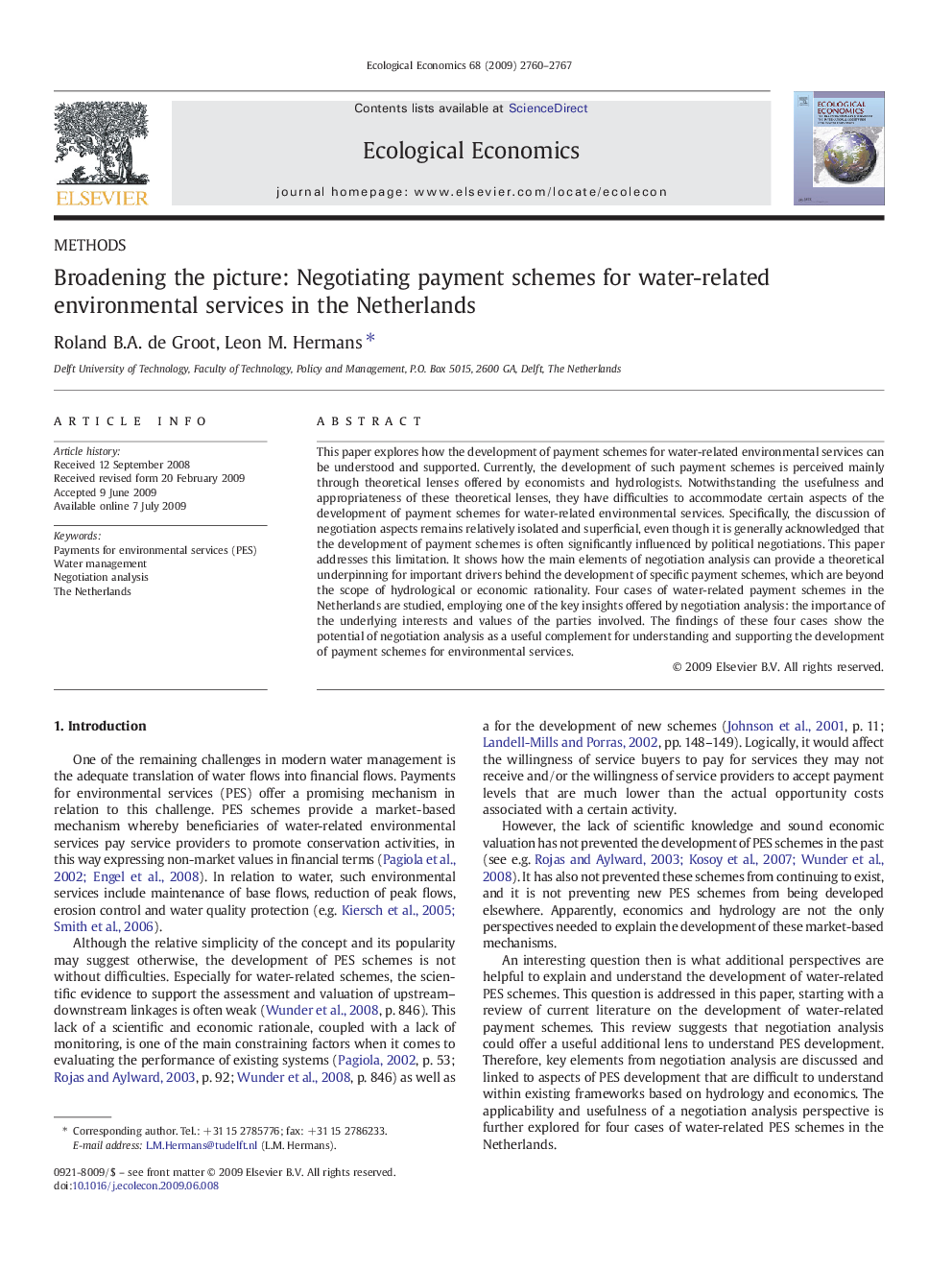| Article ID | Journal | Published Year | Pages | File Type |
|---|---|---|---|---|
| 5051421 | Ecological Economics | 2009 | 8 Pages |
Abstract
This paper explores how the development of payment schemes for water-related environmental services can be understood and supported. Currently, the development of such payment schemes is perceived mainly through theoretical lenses offered by economists and hydrologists. Notwithstanding the usefulness and appropriateness of these theoretical lenses, they have difficulties to accommodate certain aspects of the development of payment schemes for water-related environmental services. Specifically, the discussion of negotiation aspects remains relatively isolated and superficial, even though it is generally acknowledged that the development of payment schemes is often significantly influenced by political negotiations. This paper addresses this limitation. It shows how the main elements of negotiation analysis can provide a theoretical underpinning for important drivers behind the development of specific payment schemes, which are beyond the scope of hydrological or economic rationality. Four cases of water-related payment schemes in the Netherlands are studied, employing one of the key insights offered by negotiation analysis: the importance of the underlying interests and values of the parties involved. The findings of these four cases show the potential of negotiation analysis as a useful complement for understanding and supporting the development of payment schemes for environmental services.
Keywords
Related Topics
Life Sciences
Agricultural and Biological Sciences
Ecology, Evolution, Behavior and Systematics
Authors
Roland B.A. de Groot, Leon M. Hermans,
